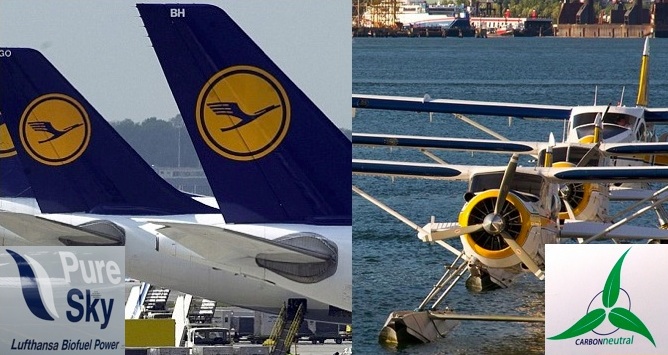Lars Breneman is planning a vacation to visit his relatives in Germany next year and after reviewing his flight options he’s chosen to fly with Lufthansa. Lars’ decision wasn’t based on any loyalty to his German ancestry, rather he chose the German airline because he’s doing his best to save money – and reduce his carbon footprint. Lars, who lives in Seattle, discovered that Lufthansa has recently begun testing bio-fuels to help lower its carbon emissions, which also means the airline may eventually pay less towards the new EU carbon fees.
The New York Times recently reported, “starting Jan. 1, 2012 the European Union will require all carriers entering or leaving its airports to either reduce their [greenhouse gas – GHG] emissions or pay a charge — whether the airline is United, Air France or Lufthansa… and the “cleanest†airlines will pay less in emissions fees.â€
Depending on the size and model of aircraft, airplanes on average spew 244 pounds of carbon dioxide emissions for every mile flown. Source:Â Blueskymodel.org
For Lufthansa the objective is to become the “driver of change” in reducing GHG emissions with its new biofuels and has estimated a savings of 1,500 tons of CO2 emissions during the recent test period.
On the other hand the US airline industry has taken a different approach having recently filed a lawsuit before the European Court of Justice.
It would be safe to say that the impending fee has caused some friction. “The European Union is imposing this on U.S. carriers without our agreement,†Wendell Albright, director of the Office of Aviation Negotiations at the State Department, said in a recent NY Times interview. “It is for the U.S. to decide on targets or appropriate action for U.S. airlines with respect to greenhouse gas emissions.â€

